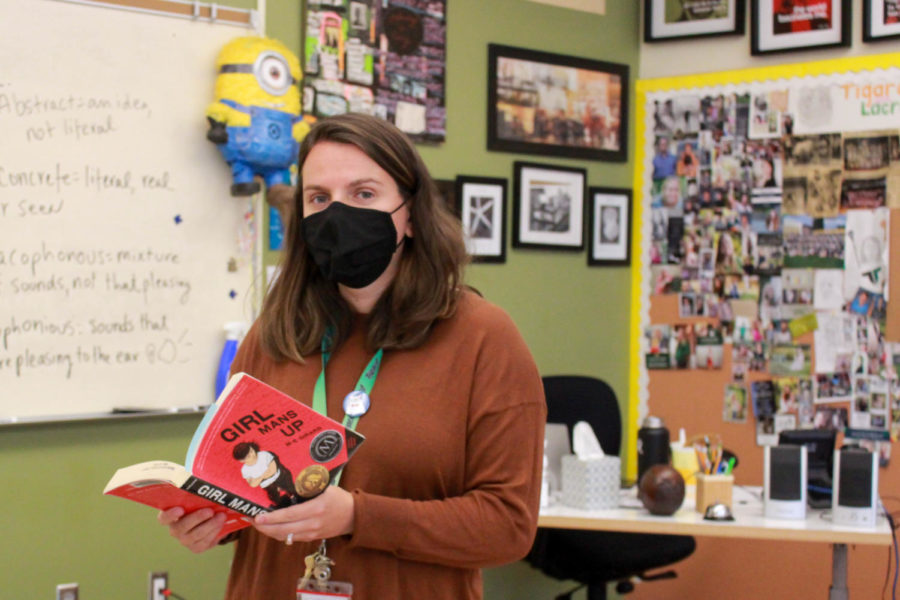Putting students in front
An interview with social justice teacher McKenzie Coulson
McKenzie Coulson’s style of teaching put students in front, leading the way while she supports them. She realized she wanted to be a teacher in college and never looked back.
September 30, 2021
Q: Why do you feel teaching socjus is important?
A: I think probably the largest reason is for the student voice. I think a lot of students feel very passionate about many topics, and while they might be discussed here and there in some classes, it didn’t seem like there was a class that really targeted a lot of the topics students feel are really relevant in their lives. I thought it was really important to give them a place to come and either be vocal or be a great listener to one another.
Q: What made you want to teach socjus?
A: I think I really wanted to also learn more about people in our school, their stories, how they see themselves, how others see them.
Q: How did you decide teaching was something you wanted to do in the first place?
A: I kinda fell into it. I originally graduated from high school and went to college because that was what you did. [I was] really interested in psychology and criminal justice, so I thought I wanted to do criminal profiling. I was really interested in the mind, and then I realized, do I really want to spend my time focusing on criminal behaviour? And I was like what else could I do? My dad was a teacher so that was always popping around in the back of my head. I like to read and I’m a decent writer, so I decided to pursue English. I went into teaching, and I never really looked back.
A: I’ve always really liked people. I always knew I wanted to work with people so then it just kind of merged together in a good way which is nice.
Q: How do you feel the best way to teach students is?
A: Sometimes the best way is to allow them to lead their learning, to get out of the way. … I present material, present ideas, and then let them craft their ideas around it and utilize the classroom space rather than just talking at people.
Q: What are some things you prioritize in your style of teaching?
A: Obviously, the student needs to come first. I really want all my students to know me and vice versa. Then I would say just being responsive to the world around us. I really try to prioritize what’s going on and not that we just live in this vacuum. Does somebody need to work on their writing or wants to become a better reader or collaborator, innovator? Whatever it is students need, I try to meet them where they are.
Q: What do you hope your students will leave with after taking your class?
A: My hope is that they feel inspired. I hope they feel empowered. I hope they feel heard. For [those] students who are a little less vocal, I hope that they find their voice because we have students who really talk a lot and then students who really just want to listen and be present. I hope that they find whatever outlets they need to be seen or heard or valued and just know there are people in this world who care as much as they do.
Q: What is something teaching has taught you?
A: Every day I learn something, whether it’s really light-hearted or superficial or something very influential, student testimonies, content.
A: Teaching as a whole is a humbling profession in a way if you want it to be. You can certainly be very centered and very ego driven, but for me it’s a very humbling profession. Even yesterday in class one of our classmates corrected me on something, and I could choose to either accept that or be like, “No. I know.” Recognize that there’s always more to learn.










